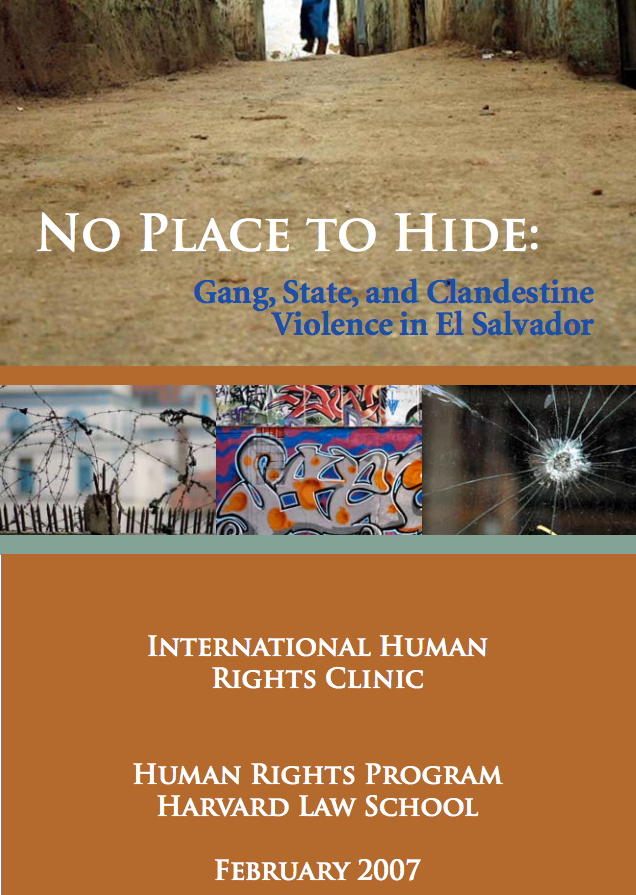In February 2007, Harvard Law School’s Human Rights Program issued a report on gang violence in El Salvador, “No Place to Hide: Gang, State, and Clandestine Violence in El Salvador.” News of the report was posted in the Human Right Program website and is reprinted below:
Following a series of fact-finding missions to El Salvador in 2006, and months of follow-up research, the International Human Rights Clinic (IHRC) of Harvard Law School’s Human Rights Program has released, “No Place to Hide: Gang, State, and Clandestine Violence in El Salvador,” a report documenting the phenomenon of youth gangs in El Salvador, human rights abuses associated with gang violence, and the Salvadoran government’s response to gang activity.
The report focuses on the systematic failure of democratic institutions since the end of the civil war of the 1980s, and the ways in which this breakdown has contributed to rising levels of violence, particularly gang violence, in the country. The report also analyzes the methods and tactics of Salvadoran gangs, and the extraordinary factors that have contributed to the rapid growth of violent street gangs.
Human Rights Program Executive Director James Cavallaro, as well as students Stephanie Brewer, Mark Jensen, Timothy Mayhle, Spring Miller, María Luisa Romero, and Molly Thomas-Jensen participated in intensive field investigations in El Salvador, interviewing current and former gang members, victims and witnesses of violence, NGO representatives, scholars, journalists and government officials. The report, available online here, draws extensively on first-hand research and expert interviews.
The report concludes that particular political conditions and law enforcement responses, more sophisticated gang operations, and indications of widespread indifference to extrajudicial violence in gang areas have led to a dramatic evolution of gang violence in El Salvador.
“Individual Salvadorans living in poor and marginalized communities have no place to hide: they are targeted by violent actors on all sides,” the report observes. “Young people and other residents of areas with a gang presence, active gang members, and inactive gang members are targeted for threats, abuses, and even killings by gangs, police, and clandestine actors like death squads.”
Most disturbing, the report argues, are indications that some Salvadoran state and law enforcement authorities may be complicit or indifferent to extrajudicial killings and social cleansing occurring in areas with a prevalent gang population.
“This is perhaps the most worrisome factor contributing to high levels of impunity and a widespread sense of public insecurity in El Salvador,” the report concludes.
The full text of the report, “No Place to Hide: Gang, State, and Clandestine Violence in El Salvador,” is available by clicking here.
